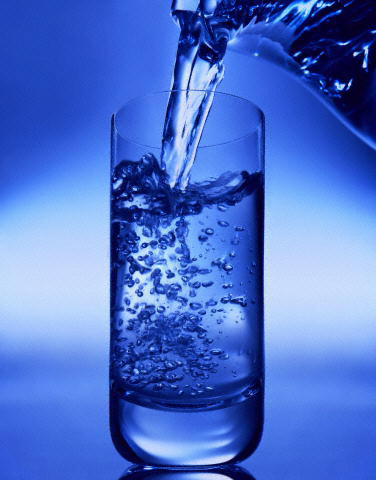Forget those 8 glasses a day
If you’re guzzling eight 8-ounce glasses of water every day – or shoot for that goal, anyway – you might be drinking more than your body really needs. Yes, the advice that you’ve been hearing for all these years is wrong! The eight-glasses myth is one of the five biggest misconceptions out there about drinking water.

Myth You should drink eight glasses of water a day.
Reality That’s just an old wives’ tale, says sport-medicine specialist. Everybody has individual – and constantly changing – needs for their fluid intake. You need to drink more if you’re active, it’s hot or humid outside, or you’re in higher altitudes, for example.
But don’t’ get us wrong – downing enough water each day is absolutely essential for good health. That’s because our bodies operate most efficiently when we’re adequately hydrated. Our digestive systems stay regular, and we can push harder during workouts. According to the Department of Agriculture’s current Dietary Guidelines, healthy people with access to fluids who aren’t stressed by heat tend to meet their hydration needs naturally by drinking with meals and when they’re thirsty.
Myth By the time you feel thirsty, you’re already dehydrated.
Reality Eight-glasses-a-day enthusiasts might believe that, but research shows it just isn’t true. Study subjects felt thirst as a dry sensation in the mouth when their bodies weren’t necessarily dehydrated.
Myth Your thirst level is the only way to gauge whether you need to drink more water.
Reality Instead of waiting to be thirsty or counting your drinks, take a look at your urine. Its color is the best indicator of whether you’re drinking enough water. If it looks like yellow lemonade, then it’s perfect. If it’s dark like iced tea, you need to drink more. If it’s clear, you probably need to drink less.
Myth You have to drink water to hydrate your body.
Reality You actually get most of your daily hydration by doing what you do naturally: eating food and drinking liquids. That’s why owning eight glasses of water is probably excessive. Juice, milk, soda, fruit, vegetables, yogurt, soup, and ice cream are all mostly water, so they count toward your daily intake of liquids. To keep your body well hydrated (and get other nutritional benefits too), go for lots of juicy veggies and fruits like cucumbers, lettuce, papayas, tomatoes, and watermelon. Eating soups with loads of veggies is another great way to get your liquids and vitamins.
Myth Caffeinated beverage don’t’ count toward your water needs.
Reality Coffee, tea, and caffeinated sodas can contribute to hydration if you drink them in moderation and if you are a regular moderate consumer. Recent research gives those drinks the green light. You might pee sooner, but you won’t pee out more than you take in (which is the effect diuretics have).
Myth Drinking more water will help you eat less.
Reality It’s a bummer but beverages don’t dull hunger signals. That mechanism prevented our prehistoric ancestors from starving. Today, unfortunately, we’ll eat the same amount whether we drink plain water or a 300-calorie smoothie. However, it is true that you replace caloric, sugary beverages like fruit juice or soft drink s with calorie-free water, you will lose weight.
Money Saver Don’t shell out for pricey flavored waters. Experts tried some widely sold ones and found that many weren’t so tasty. A better bet: Make your own for just pennies. Freshen up plain water with fruit, cucumbers, mint leaves, or a cinnamon stick.
Source: Shop Smart

